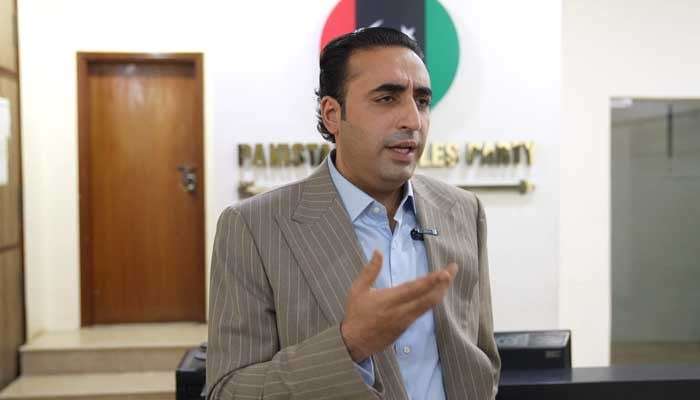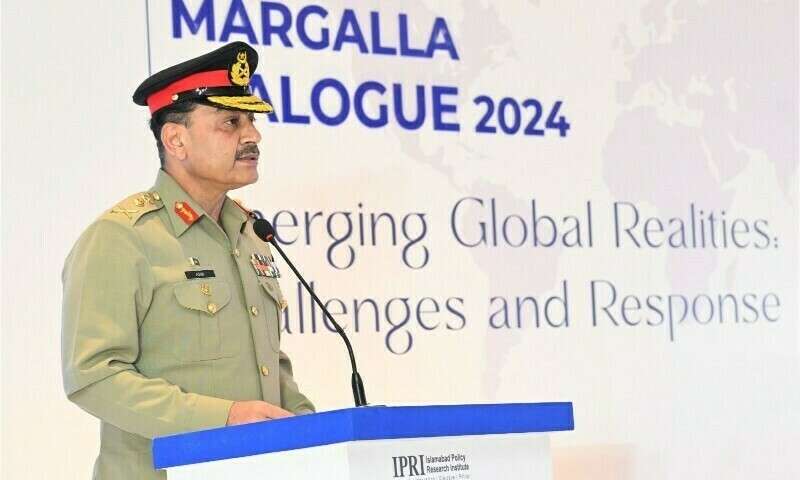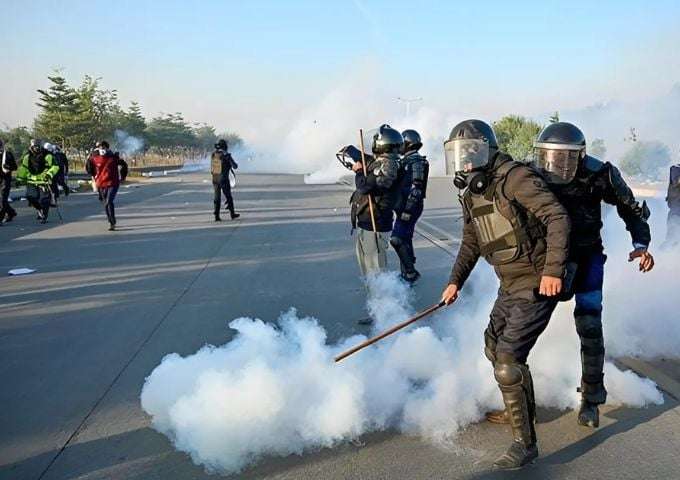Introduction
In a recent address in Larkana, Pakistan Peoples Party (PPP) Chairman Bilawal Bhutto Zardari issued a stern warning to the ruling Pakistan Muslim League-Nawaz (PML-N), urging them to make decisions that foster unity and consensus across all provinces. Bilawal’s remarks come amid growing concerns over the PML-N’s unilateral governance style, which he believes risks alienating smaller provinces and sowing discord within the federal government.
In this article, we will dive deeper into the significance of Bilawal’s warning, explore the consequences of unilateral decision-making, and examine the broader implications for Pakistan’s political landscape.
H1: Bilawal Bhutto’s Call for Consensus-Based Governance
H2: PML-N’s Governance Approach Under Scrutiny
Bilawal Bhutto Zardari, the PPP chairman, has voiced his concerns over the Pakistan Muslim League-Nawaz’s (PML-N) approach to governance. He emphasized that successful governance requires collective decision-making, not decisions that are made unilaterally by one party or group. His critique highlights the increasing tension between the federal government, led by PML-N, and smaller provinces, particularly those in the south of Pakistan.
“Let me remind PML-N that they do not have a two-thirds majority in the parliament to take decisions on their own,” Bilawal stated, urging the ruling party to consult other stakeholders before making any significant decisions that affect the provinces.
H2: Bilawal’s Concerns Over Provincial Rights and Resource Distribution
A central theme of Bilawal’s speech was the equitable distribution of resources among the provinces, with a particular focus on water distribution. He emphasized that water is a basic human right, and it is essential that all provinces receive their fair share. This is a long-standing issue, particularly in provinces like Sindh, where water shortages are a pressing concern.
Bilawal’s comments resonate deeply in a country where the distribution of resources often leads to tensions between provincial and federal governments. He stressed that the federal government must ensure that smaller provinces, especially Sindh, receive their rightful share of resources, including water, to avoid further dissatisfaction and unrest.
“The federal government must ensure that provinces receive their rightful share of resources. This includes ensuring equitable access to water, which is a basic necessity for all,” Bilawal said.
H3: The Fallout of Unilateral Decisions
H2: The Issue of Unilateral Decision-Making
One of the primary criticisms that Bilawal leveled against the PML-N government was its tendency to make unilateral decisions, particularly in matters concerning provincial development. Bilawal reminded the PML-N leadership that their political majority does not grant them the authority to ignore smaller provinces or take one-sided decisions.
He likened the recent unilateral decisions made by the PML-N to previous controversial decisions, such as the Kalabagh Dam project, which remains a point of contention even today. The decision to build the Kalabagh Dam was opposed by multiple provinces, particularly Sindh, due to concerns about its impact on water resources.
Bilawal’s comments on the controversial canal projects further underscore his concerns about the government’s approach. “Just like the Kalabagh Dam, decisions about canal infrastructure are being made without consulting the relevant provinces. These are contentious issues that require consensus, not unilateral action,” he said.
H2: Failed Commitments on Development Projects
Bilawal also criticized the federal government for failing to fulfill commitments made regarding development projects, especially those related to the Public Sector Development Programme (PSDP). The PPP had supported the PML-N’s prime ministerial candidate based on a mutual understanding that grievances from smaller provinces, including Sindh, would be addressed.
However, Bilawal expressed his disappointment at the lack of progress on key projects, stating that it was agreed the PSDP would be developed in collaboration with the provinces. “Unfortunately, this has not happened,” he stated, underscoring the importance of honoring agreements to ensure political harmony.
H3: Federal Harmony and Its Importance
H2: The Need for Consensus in Federal Decision-Making
At the heart of Bilawal’s address was a plea for unity and harmony within the federal government. He argued that consensus-based decision-making is the only way to avoid alienating smaller provinces and maintain stability in Pakistan’s political system.
Bilawal’s statement underscores the fragile nature of political relations in Pakistan, where disagreements over governance, resource distribution, and provincial autonomy have historically led to unrest. Bilawal’s warning serves as a reminder that unilateral decisions could jeopardize the stability of the current government, particularly if they continue to ignore the concerns of smaller provinces.
H3: FAQs
1. What was Bilawal Bhutto Zardari’s warning to PML-N?
Bilawal Bhutto Zardari warned PML-N against making unilateral decisions and emphasized the need for consensus-based governance. He cautioned that ignoring the concerns of smaller provinces could lead to political instability.
2. Why is resource distribution a major issue in Pakistan?
Resource distribution, particularly water, is a significant issue in Pakistan as smaller provinces, such as Sindh, have often faced shortages. Bilawal Bhutto Zardari stressed that the federal government must ensure fair distribution to avoid regional tensions.
3. What is the Kalabagh Dam controversy?
The Kalabagh Dam project has been a source of controversy for decades, as many provinces, particularly Sindh, oppose its construction due to concerns about water distribution and its potential impact on the province’s agricultural resources.
4. Why does Bilawal oppose unilateral decisions?
Bilawal opposes unilateral decisions because they often ignore the concerns of smaller provinces and can lead to political discord. He believes that decisions should be made through mutual consultation to ensure stability and unity.
5. How does Bilawal’s approach differ from that of PML-N?
Bilawal advocates for a more inclusive approach that considers the concerns of all provinces, while PML-N is accused of making decisions without sufficient consultation with smaller provinces. Bilawal’s approach seeks to foster unity, while PML-N’s approach is seen as more centralized.
Conclusion
Bilawal Bhutto Zardari’s remarks reflect a growing frustration with the ruling PML-N’s governance style, which he believes is alienating smaller provinces. His call for consensus-based decision-making highlights the importance of ensuring fair resource distribution and fostering harmony within Pakistan’s federal system. As Pakistan continues to grapple with political challenges, Bilawal’s message serves as a reminder that unity is essential for long-term stability.



